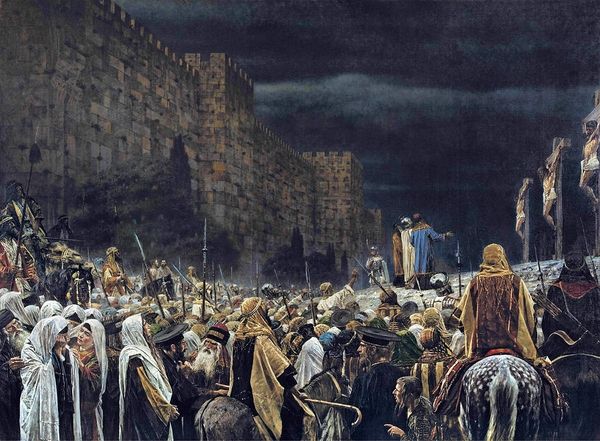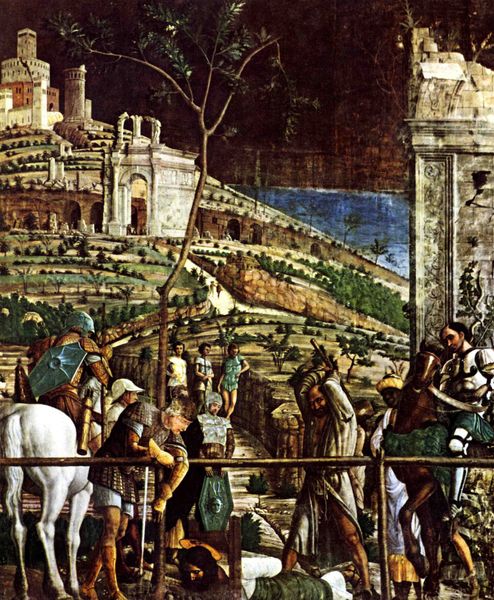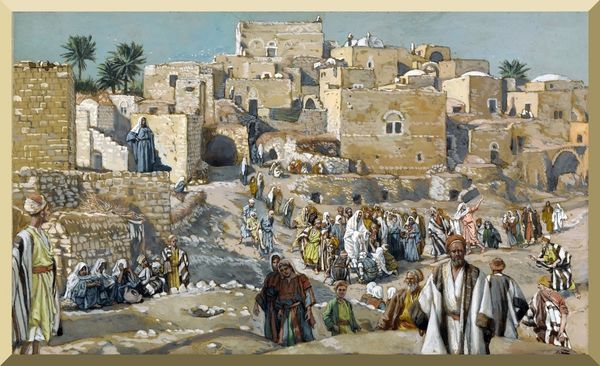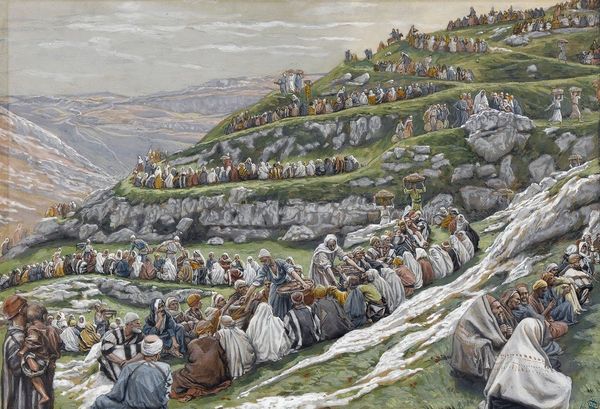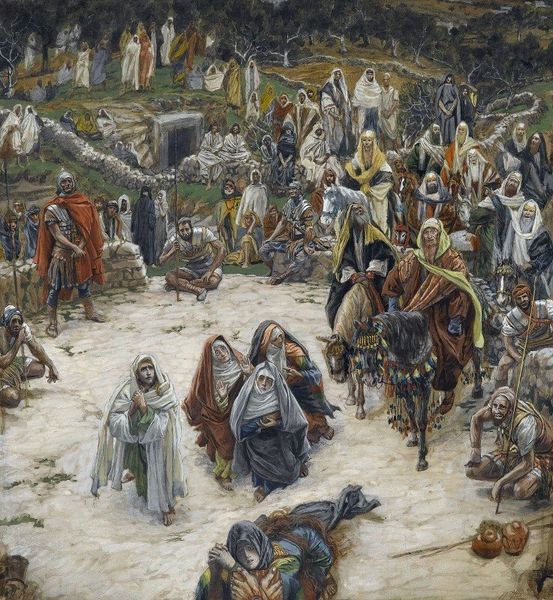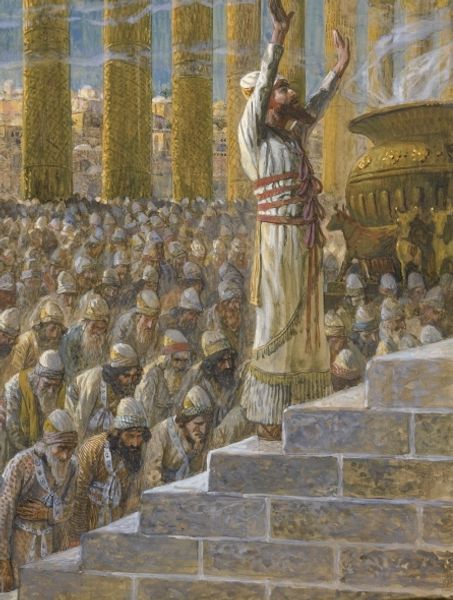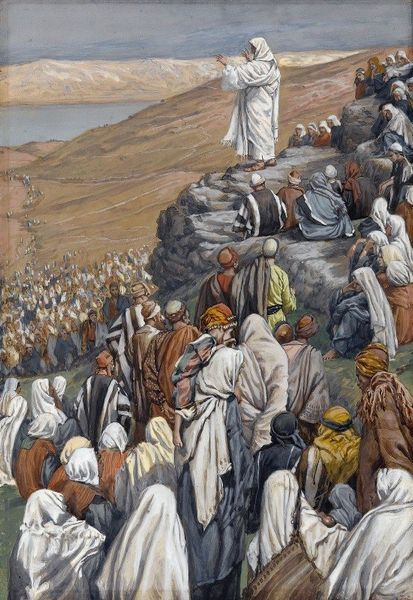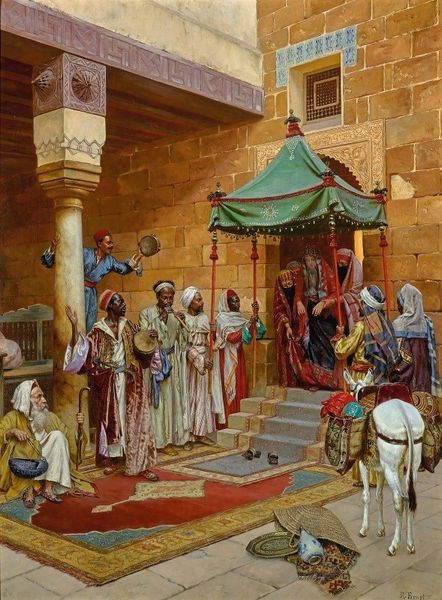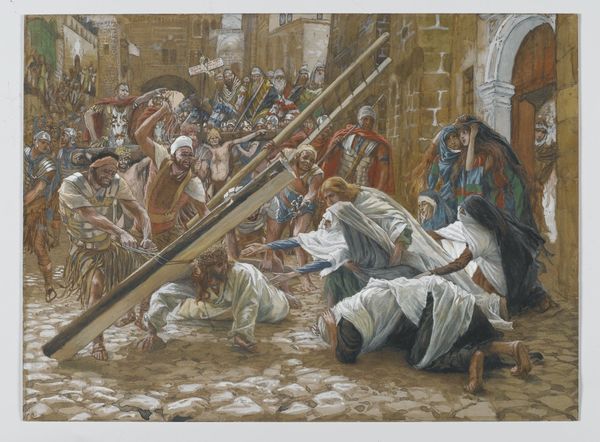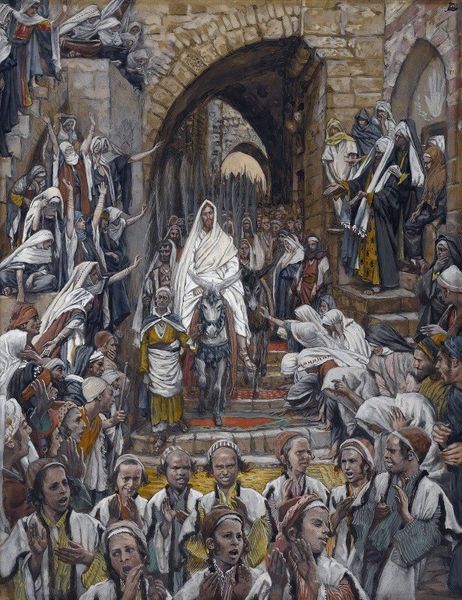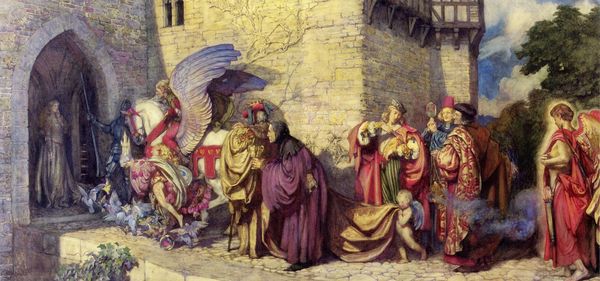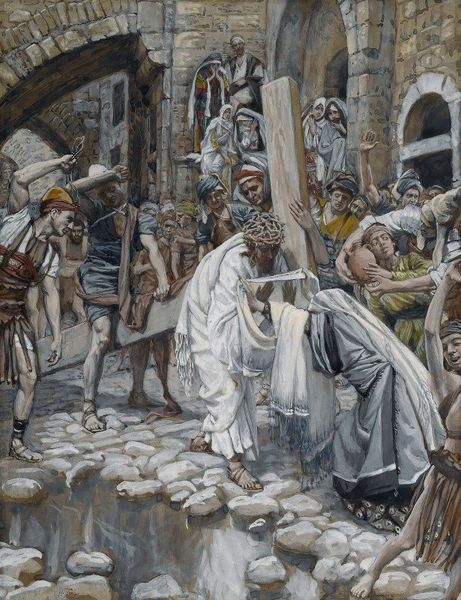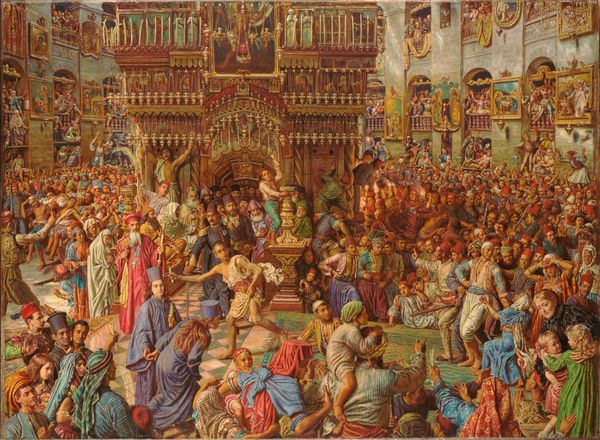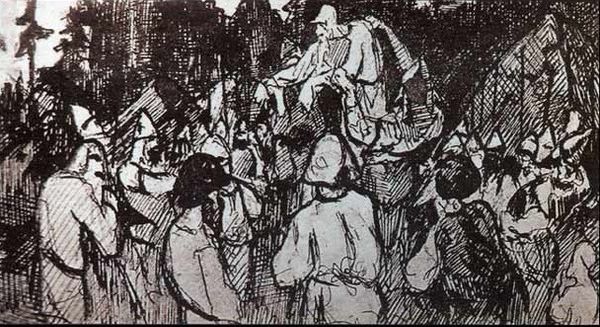
painting
#
painting
#
landscape
#
classical-realism
#
figuration
#
genre-painting
#
history-painting
#
academic-art
#
realism
Copyright: Public domain
James Tissot painted "Pilate's Forum" during a period of intense religious and social change. Born in 1836, Tissot lived through the rise of modernity, and shifts in religious thought that characterized late 19th-century Europe. In this scene, Tissot reconstructs a moment laden with political and spiritual tension. Pilate, representing Roman authority, is depicted amidst a crowd of Jewish people, illustrating the dynamic between colonial power and local identity. How does Tissot portray the figures in this scene? Are they mere historical characters or stand-ins for broader themes of justice, power, and morality? Notice the arrangement of the crowd. Roman soldiers divide the space, while Jewish figures are on the margins. What does this say about the era's societal hierarchies? Tissot's painting invites us to contemplate the intersections of identity, power, and faith. He asks us to reflect on the past's echoes in our present.
Comments
No comments
Be the first to comment and join the conversation on the ultimate creative platform.
